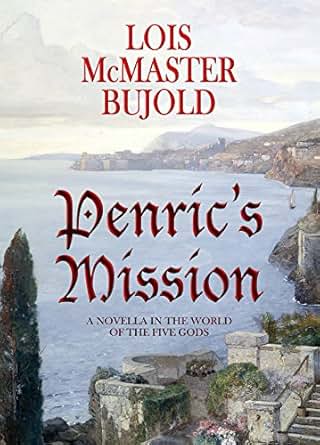... physician, sorcerer, divine? Which of his bewildering multiplicity of selves had laid itself down in such hope-starved humility? [loc. 1624]Penric, at thirty, is quite different from the generally light-hearted protagonist of Penric and the Shaman and Penric's Fox. There have been several important changes -- only gradually revealed -- in his circumstances, and at the opening of this novella he's en route to Cedonia with letters from the Duke of Adria, who would like General Adelis Ariseydia to come and work for him.
Unfortunately, Penric is quickly betrayed and imprisoned. This novella is the story of his escape, and his attempt to save Ariseydia (and the general's charming widowed sister Nikys) from the doom that Penric believes himself partially responsible for bringing down upon them.
Of course it's not that straightforward. Ariseydia doesn't especially want to be rescued, at least not by this disreputable demon-ridden sorcerer; Penric's good deeds are driven by a well of misery; Desdemona's fierce protectiveness of her host is stronger, and more loving, than ever. And Penric's attitude to religion -- from cheerfully raiding temple strongboxes (an advance on his pay) to the miracles he'd rather nobody noticed -- is pragmatic, unfussy and mature.
I found the backstory as engrossing as the main plot -- and my major complaint is that the story simply stops, after a major and potentially disastrous confrontation. Luckily I was able to go straight on to Mira's Last Dance, which picks up immediately after the end of Penric's Mission.

No comments:
Post a Comment